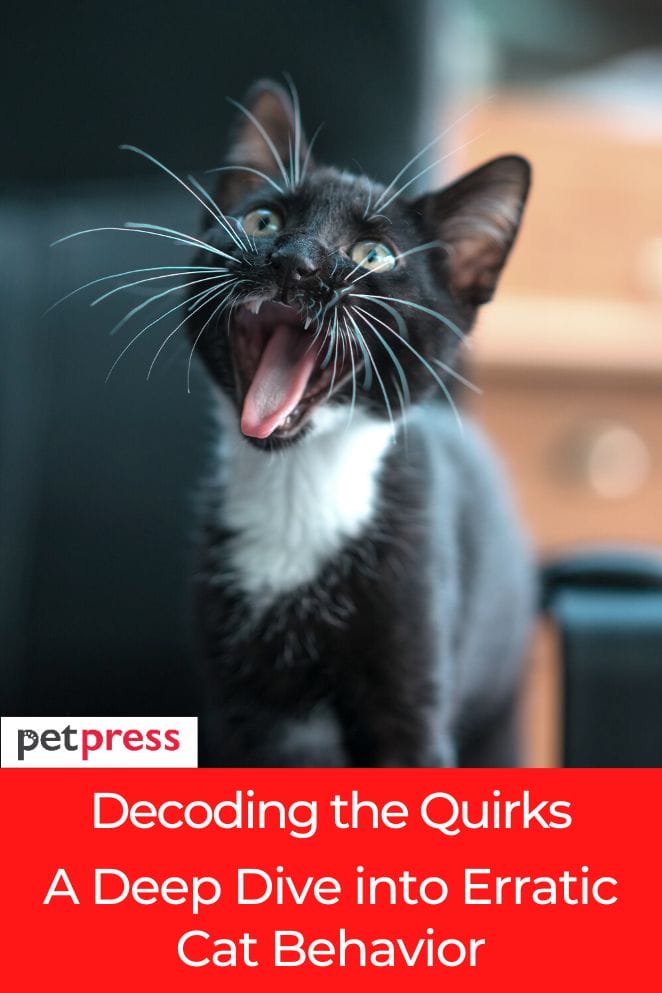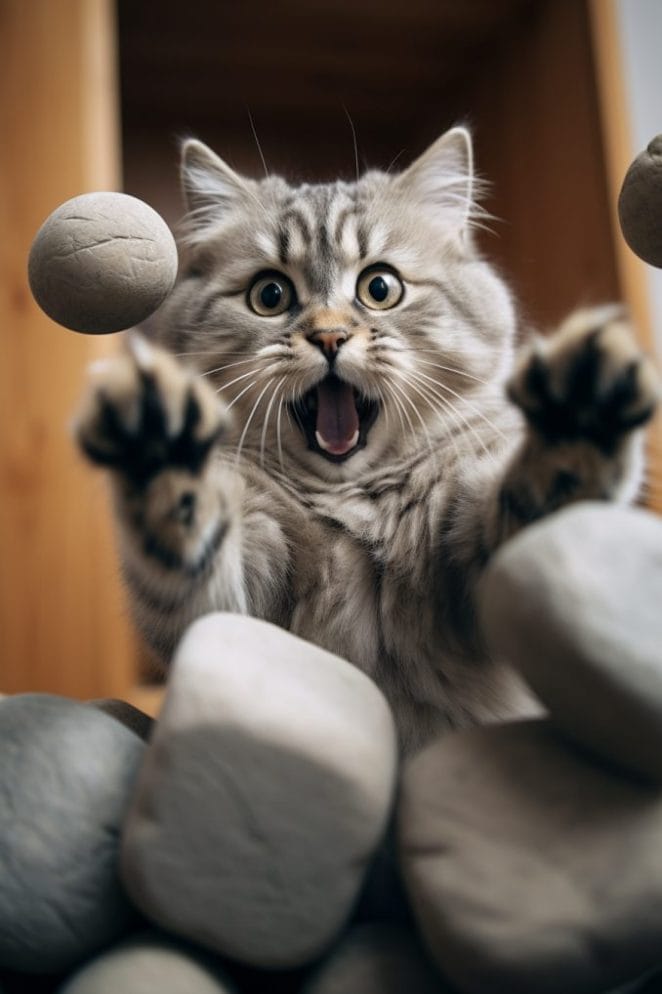
Embrace the joy of having a feline companion in your home without letting the mysteries of erratic cat behavior perplex you.
Our comprehensive guide is designed to demystify these complexities.
We delve into the underlying causes of these quirks, offering practical tips for managing and understanding your cat’s idiosyncrasies with ease.
Gain valuable insights into their unique behaviors to foster a harmonious relationship with your furry friend.
What is Erratic Cat Behavior?
Erratic cat behavior encompasses unpredictable and irregular actions exhibited by our feline companions.
These behaviors can range from sudden bursts of energy to unexplained mood swings, creating a puzzle for cat owners to decipher.
Understanding the nuances of these actions is crucial for fostering a harmonious relationship with your cat and addressing any potential underlying issues that may contribute to their erratic behavior.
By delving into the intricacies of their actions, cat owners can navigate the challenges and better respond to their cat’s unique needs and expressions.

Causes of Erratic Cat Behavior
Understanding the causes behind erratic cat behavior is pivotal for cat owners seeking to nurture a balanced and happy feline companion.
Here’s a closer look at the factors that may contribute to these behaviors:
Playful energy
Cats, renowned for their playful nature, exhibit bursts of energy that might seem erratic to us.
These spirited moments often involve chasing imaginary prey, engaging in acrobatics, or darting around the house.
Understanding and appreciating this playfulness is key to fostering a positive relationship with your feline friend.
Stress and anxiety
Changes in the environment, new family members, or disruptions in their routines can induce
This may manifest as seemingly erratic behaviors such as hiding, excessive grooming, or vocalization.
Recognizing these signs allows cat owners to address the sources of stress and provide a comforting environment for their pets.
Health issues
Erratic behavior can sometimes be a signal of underlying health issues.
Pain or discomfort may prompt behaviors that seem out of character.
A thorough vet examination is crucial to rule out any medical concerns, ensuring the well-being of your feline companion.
Territorial instincts
Cats are inherently territorial, and perceived threats to their territory can trigger erratic behavior.
This may include reacting to other pets or unfamiliar scents.
Understanding and respecting their territorial instincts enables cat owners to create a harmonious environment that aligns with their feline companion’s natural behaviors.

How to Deal with Erratic Cat Behavior
Create a safe haven
When dealing with erratic cat behavior, it’s crucial to offer your feline friend a safe haven.
This dedicated space should be quiet and comfortable, serving as a retreat during times of stress.
Providing such a sanctuary helps reduce anxiety and fosters a sense of security, allowing your cat to regain a sense of calm.
Establish routines
Cats thrive on routine, and establishing a consistent schedule is a key strategy.
From regular feeding times to designated play sessions and quiet periods, a predictable environment minimizes stress-induced erratic behavior.
This stability provides a reassuring backdrop for your cat’s daily life.
Interactive play
Channeling your cat’s playful energy in constructive ways is essential.
Interactive play sessions are an effective means of achieving this.
Engage your cat with toys like feather wands or laser pointers, providing an outlet for their natural instincts.
This not only enriches their environment but also helps redirect any potentially disruptive behaviors.
Regular vet check-ups
Regular veterinary check-ups are paramount when addressing erratic behavior.
These check-ups serve to identify and address any underlying health issues that may contribute to your cat’s behavior.
From pain management to overall wellness assessments, prioritizing veterinary care ensures the holistic well-being of your feline companion.

Conclusion
Establishing a harmonious connection with your feline friend involves understanding and addressing erratic cat behavior.
This comprehensive guide empowers you to recognize the causes behind these behaviors and implement proactive measures.
By creating an environment that prioritizes your cat’s well-being and happiness, you pave the way for a mutually fulfilling relationship.
Gain insights and take practical steps towards fostering a harmonious bond with your furry companion.
FAQs
Yes, cats are naturally playful and may exhibit erratic behavior, especially during play or moments of high energy. However, sudden or extreme changes in behavior should be monitored and addressed.
Signs of stress in cats include excessive grooming, hiding, changes in appetite, or vocalization. Creating a calm environment and observing their behavior can help identify and address stressors.
Yes, underlying health problems such as pain or discomfort can contribute to erratic behavior. Regular veterinary check-ups are crucial to rule out any medical issues.
While individual personalities vary, some breeds, such as Siamese and Bengal cats, are known for their playful and energetic nature, potentially displaying more erratic behavior.


GIPHY App Key not set. Please check settings